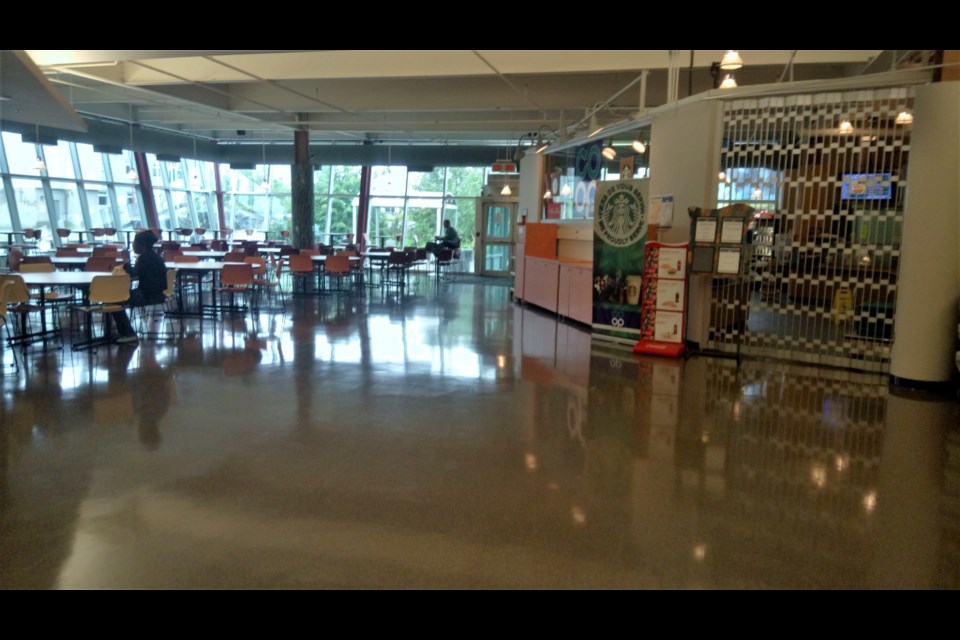Feeding students at post-secondary education schools is just as important as teaching them.
College Boreal is aiming to not only provide students with nutritious, locally-sourced food, but teach them food sustainability and ultimately create a northern food culture.
Getting locally-sourced food, however, can be an issue, especially for northern colleges.
College Boreal is among four colleges in Ontario participating in a procurement initiative led by Mohawk College to see how much locally-sourced food they can access from nearby farms.
Algonquin College in Ottawa, Fleming College in Peterborough and Humber College in Toronto are also part of the initiative.
“Right now we are doing a food audit to give us a sense of what and where we can get,” said Marc Despatie, director of communications at College Boreal in an interview. “It's not just about cost and nutrition, but carbon footprint as well.”
He explained for northern colleges like Boreal sourcing local food is difficult due to distance from farms. Even though local food has been experiencing a resurgence, he said many of the farms are small “hobby farms” and do most of their sales at local markets or sell direct to families.
“We are not close to the bread baskets like colleges are in the south, and for our campuses in Timmins and Hearst, it's even more challenging,” he said. “We are looking at everything, from potatoes, which can be bought and stored almost anytime of the year, to fresh produce and berries. With those they are not available year-round, do we get fresh and can them at the college, then don't buy any more over the winter from elsewhere?
“These are questions we want to answer before developing a framework.”
The college, through their Boreal Co-op, already sources some food from local suppliers, such as Eat Local Sudbury, Flanagan's and Valley Growers. Chef Jean Huneault said the framework is looking at logistics unique to the college, such as the population swings between summer and winter, distance to nearest food sources, storage and safe handling and if they can grow some of their own food on campus.
“We started working with local sources last year and this year as well,” he said. “I have to be careful ans make sure they are following the standards. Leafy greens are best in the summer, but things like carrots, potatoes and apples and all types of squashes can hold pretty well. I have to see what I buy as an investment.”
What constitutes local also has to be addressed. Huneault said they have to determine how far they are willing to go to source their food and still be considered local.
The biggest challenge will be space, he said. If he had larger storage in freezers and refrigerators he could accommodate more. As well, they are dealing with daycares and caterers they have to accommodate.
Despatie said they will be installing a greenhouse on the campus this summer the agricultural program will be using to experiment with different strains of plants that will provide the best yields for the northern climates.
Eventually, both said they hope to nurture a northern food culture with products that are mostly or entirely sourced from the region.
“There's a little jealously over the south and their abundance,” Huneault said. “They have dairy, wines, fruit, but we can make our own as well. We are taking a look at places like Kapuskasing to see how we can create our own products based on what we can produce.”
The end result is not just to provide better meals, but teach students about the positives of supporting local food by showing them what can be made in their own community.
“When I was in college it was fried food, pizza and pop,” Despatie said. “The students are already sophisticated in their food choices, but if we can teach them about better food choices and variety while they are willing to expand their knowledge, they will keep supporting their local food.”
In 2016, the Greenbelt Fund, in partnership with the Ontario Ministry of Agriculture, Food and Rural Affairs, provided Mohawk College with $100,000 in funding through the Local Food Investment Fund (LFIF) to develop the first provincial local food procurement model for Ontario colleges.
The four colleges will receive up to $10,000 in matching funds to support the pilot projects.
Despatie said the audit will be completed at the end of the summer, but they won't be ready to launch any project until around early 2018.
